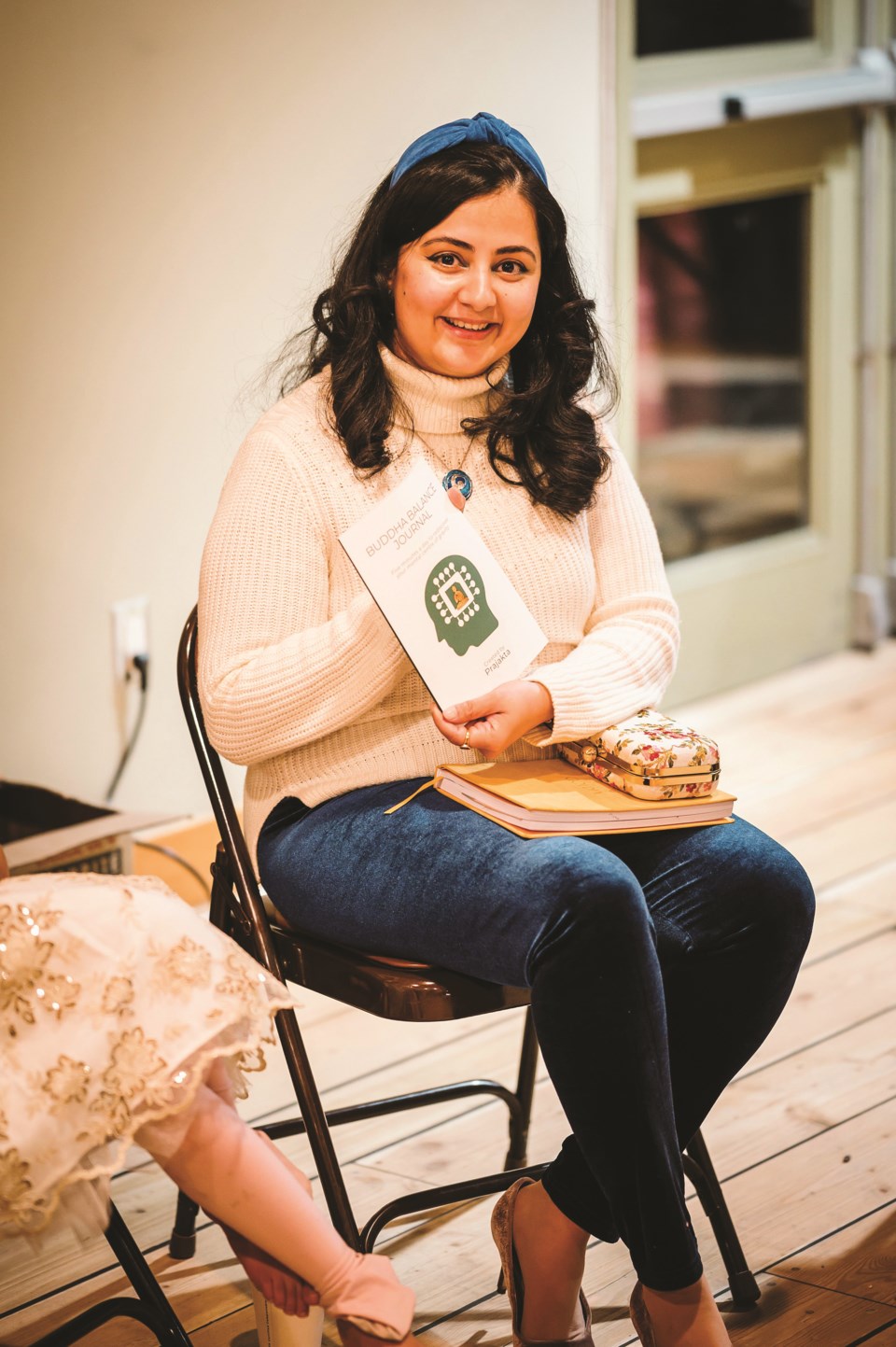Not all quests to find a life balance involve work and family.
In Whistler, Prajakta Kharkar Nigam observed a different kind of struggle for inner equilibrium.
“When I moved here, one of the driving factors for us was we saw people taking life holistically,” she says. “The kids were not in school five days a week. They were in school four days a week and one on the mountain. That’s such a refreshing mindset change. I’ve not seen anyone prioritizing play alongside work so well as Whistlerites do. Over time, now that I’ve lived here almost three years, it’s a kind of balance that prevents you from doing too much at work … But it’s still an external kind of balance. When it’s external, what can end up happening is you can become obsessive about this other thing.”
Kharkar Nigam has spent a good deal of time reflecting on that concept—sparked in part by becoming a mother while working as an economist.
“I couldn’t relate to the work-life balance idea the way it was being peddled,” she says. “I was enjoying my work and the intensity of my work. I couldn’t relate to that whole dialogue of taking time away from work and adding it to life. It seemed like a zero-sum game.”
So she started observing people around her—from all stages and walks of life. “I realized all these people were making the same mistakes. They were trying to balance something that was external from them. A genuine balance should be an inner balance,” she says.
That’s when she sat down at her desk and mapped out a “pyramid of balance” that became the blueprint for her new self-published book, Buddha Balance Journal. Filled with short exercises, it aims to help busy people stop and “take stock of what it feels like to be centred.”
“At the end of the journal, pick one or two or three that you would make a daily practice out of,” she says.
While it’s not a typical book, the writing process was still marred by bouts of writer’s block, something Kharkar Nigam’s new friend, author and Whistler Writers Festival founder Stella Harvey, helped her with.
“Stella has been my mentor for writing since I moved to Whistler,” she says. “She’s one of the first people I met in Whistler through another friend … [She’s] so supportive. During the pandemic, it wasn’t easy to make friends. We used to go on hikes and during those walks I gained nuggets of writing wisdom and life wisdom from her. It was less about technical [aspects of writing] and more about the life of a writer. How do you keep going when there aren’t any external deadlines or a publisher waiting to publish what you write?”
This wasn’t, however, Kharkar Nigam’s first book. Perhaps embodying the idea of “balance,” her other titles couldn’t be more different than Buddha Balance Journal.
Perspectives on Uganda: Reflections of an Odi Fellow, was inspired by her time working as an economist with Reserve Bank of Uganda while her very first foray into publishing was a book of poems.
So, how did an economist who has lived and worked around the world wind up in Whistler?
“Anytime anyone asks me, ‘Why did you choose Whistler?’ I say, ‘I didn’t choose Whistler, Whistler chose me,’” she says.
Kharkar Nigam, her husband and two children were based in Toronto, but on a sabbatical travelling the world when February 2020 hit.
“We were travelling in India when the prime minister’s famous speech [happened], ‘If you’re a Canadian living abroad, it’s time to come home,’” she says. “We decided to come home.”
The family was faced with two choices. They could either return to Toronto—which had sky-high COVID numbers—or head to Vancouver, where Kharkar Nigam’s in-laws lived.
B.C. still had schools open, so they headed west.
While they were travelling they had researched schools, and were drawn to the Waldorf educational philosophy. They visited schools in North Vancouver, Squamish and on Vancouver Island, but it wasn’t until they saw the Whistler Waldorf School that something clicked.
“Everything fell into place,” she says. “I took that as a sign.”
They intended to stay for a year, but in that age-old Whistler tale, they’re still firmly in the community three years later.
Kharkar Nigam celebrated her new book with a launch at the Spruce Grove Field House last month. Buddha Balance Journal is also available at Armchair Books, Green Lake Station in Rainbow, and through her directly (at [email protected]).
“One lady at my book launch commented at the end of my reading that she relates to this,” Kharkar Nigam says. “She took time away from work to focus on her family, but all the time [she] put towards family became the activity that saps her energy. My whole argument in the Balance Journal is that these aren’t separate compartments. If you’re feeling internally centred, it doesn’t matter if you’re skiing or working on academics or playing with your baby.”





